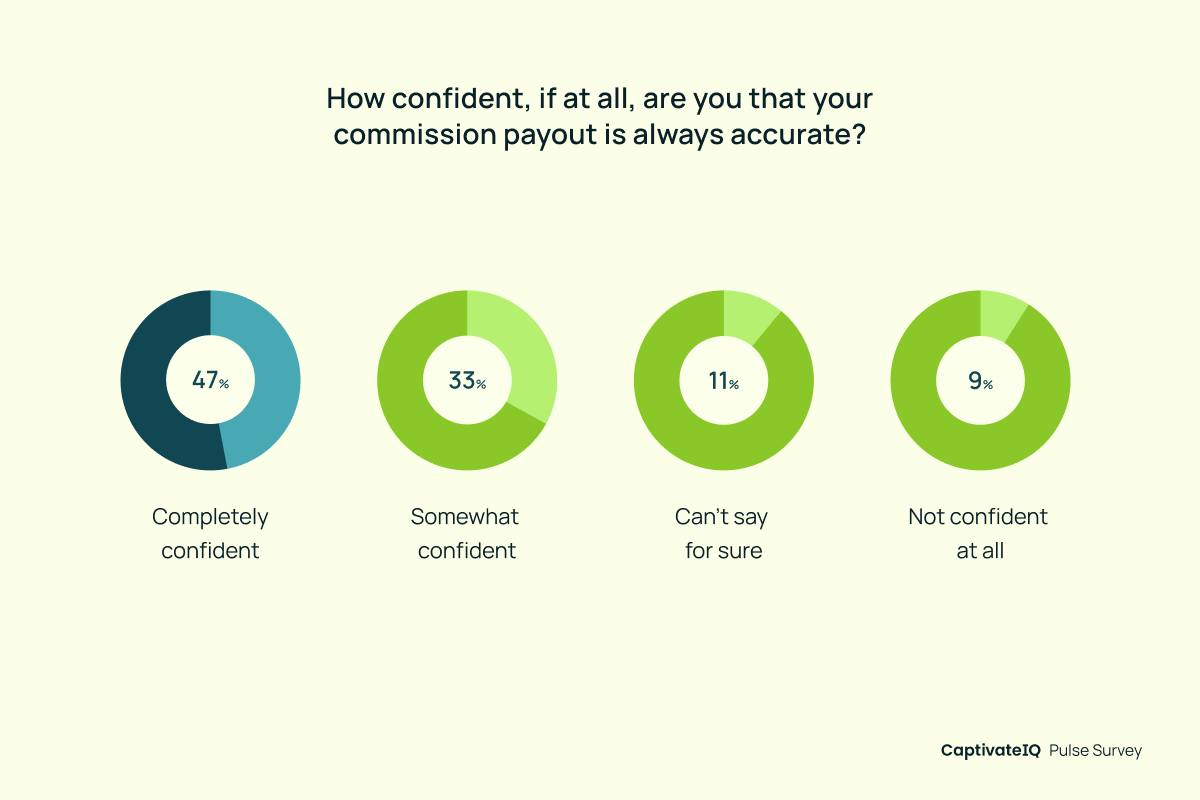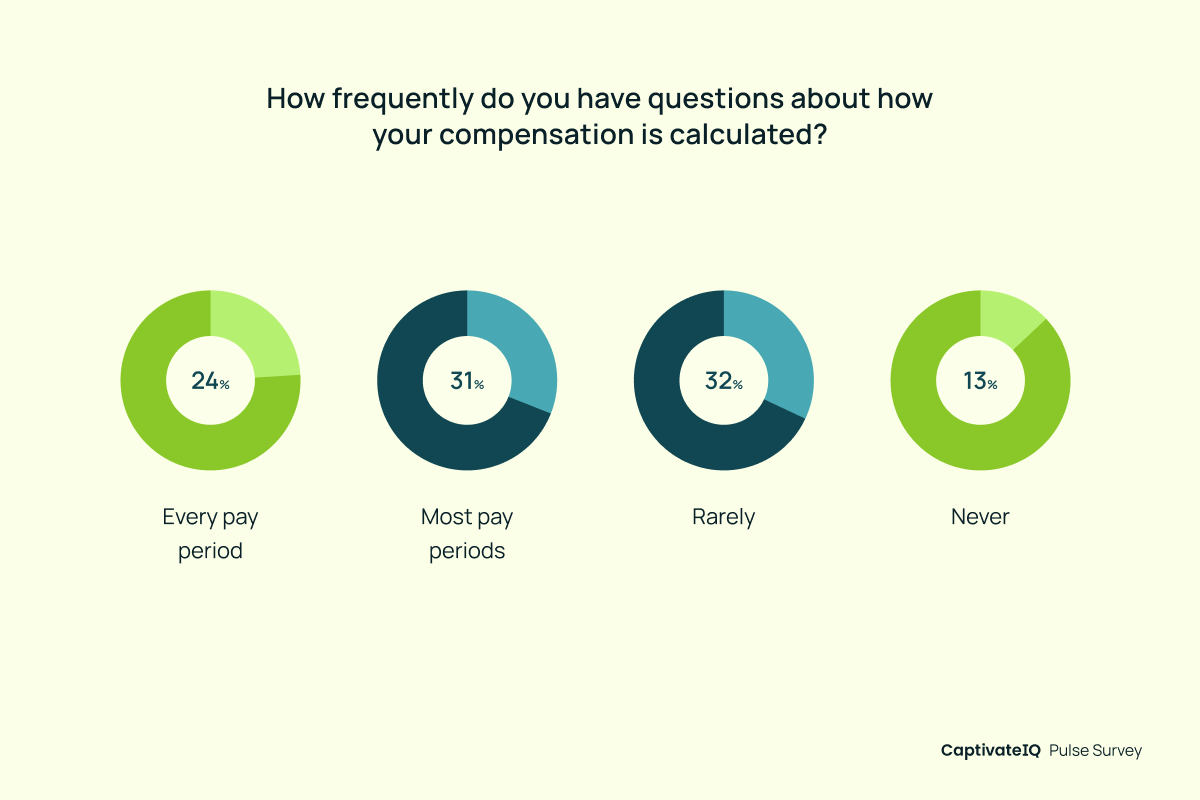Compensation & Motivation Pulse Survey Results: A Lack of Trust in Incentive-based Pay Impacts Performance
While incentives don’t always take the form of monetary rewards, the right variable compensation plan can certainly speed up the journey to hitting your revenue and other organizational goals. By directly tying take-home pay to an individual’s impact on the business, organizations can drive the specific behaviors that lead to their success.
And unsurprisingly, incentive compensation can be a pretty powerful lever.
The Motivational Power of Incentive-based Pay
According to CaptivateIQ’s recent Compensation & Motivation Pulse Survey, which polled 1,000 commissionable U.S. employees across GTM (Go-to-Market) functions:
- 57% say working for commissions or bonuses motivates them to do a better job at work and over half (52%) say it motivates them to hit their goals.
- 44% say it improves job satisfaction and 43% say it makes them feel more engaged at work, versus 18% who say it makes them feel less engaged at work and 22% who say it makes them anxious about hitting goals.
- Only 7% say working for commissions or bonuses doesn’t impact their work at all.
.png)
81% of survey respondents also said their ideal pay structure would include some degree of commissions, further highlighting how variable compensation can be a key driver for improved revenue performance, especially if incentives are closely aligned with company goals.

Exploring Roadblocks & Opportunities
Beyond variable compensation plan design and implementation, however, transparency and visibility are crucial for making sure incentives act as a truly effective lever, providing clarity around goals and inspiring trust in payouts to effectively motivate GTM teams.
In fact, when we surveyed commissionable employees about what improves their motivation at work, 59% said having confidence that commissions are calculated accurately, 53% said timely commission payouts, and almost half said both visibility into payout calculations and potential earnings, and quick responses to questions about payouts.

And yet, our survey also revealed that less than half of commissionable employees surveyed are completely confident that their commissions payout is always accurate, while 33% are somewhat confident and 9% are not confident at all.

To make matters worse, nearly half said they’ve been late late for a commission or bonus, over one-third said they’ve either been unclear about what a commission or bonus should be of have been underpaid on a commission or bonus, and nearly one-quarter were not paid a commission or bonus when they thought they should be.

Not only does mistrust in commission payouts impact motivation, it also often negatively impacts productivity.
Only 13% of those we surveyed never have questions about how their compensation is calculated, while over half (55%) have questions most or every pay period – and according to our most recent State of Sales Compensation Report, over half (53%) of the sales managers surveyed said they spend 2-3 days resolving questions or disputes each pay period.

Additionally, when asked how often they recalculate commissions manually to confirm payout accuracy, 85% of commissionable employees said they manually recalculate commissions at least some of the time to confirm payout accuracy, taking valuable time away from more lucrative revenue-generating activities.

Incentive-based pay has the potential to be a powerful tool for driving GTM motivation and revenue performance within organizations of all sizes. However, it’s clear that ensuring accuracy, timeliness, and transparency in commission payouts is essential for cultivating trust and maximizing the efficacy of such programs. As organizations navigate the complexities of incentive compensation, prioritizing employee trust and alignment with company objectives will be critical in fostering a culture of performance excellence.
For more insights and best practices for implementing effective incentive strategies, download our comprehensive new guide, "The Secrets Behind a Successful Performance-based Culture: How to Build, Engage & Nurture a Winning Revenue Team."
Methodology
CaptivateIQ conducted the survey in March 2024, polling 1,000 full-time U.S. workers aged 18 and above, compensated through commissions or a combination of hourly/salary plus commissions. The survey was administered via Pollfish, an online survey platform.
.svg)








